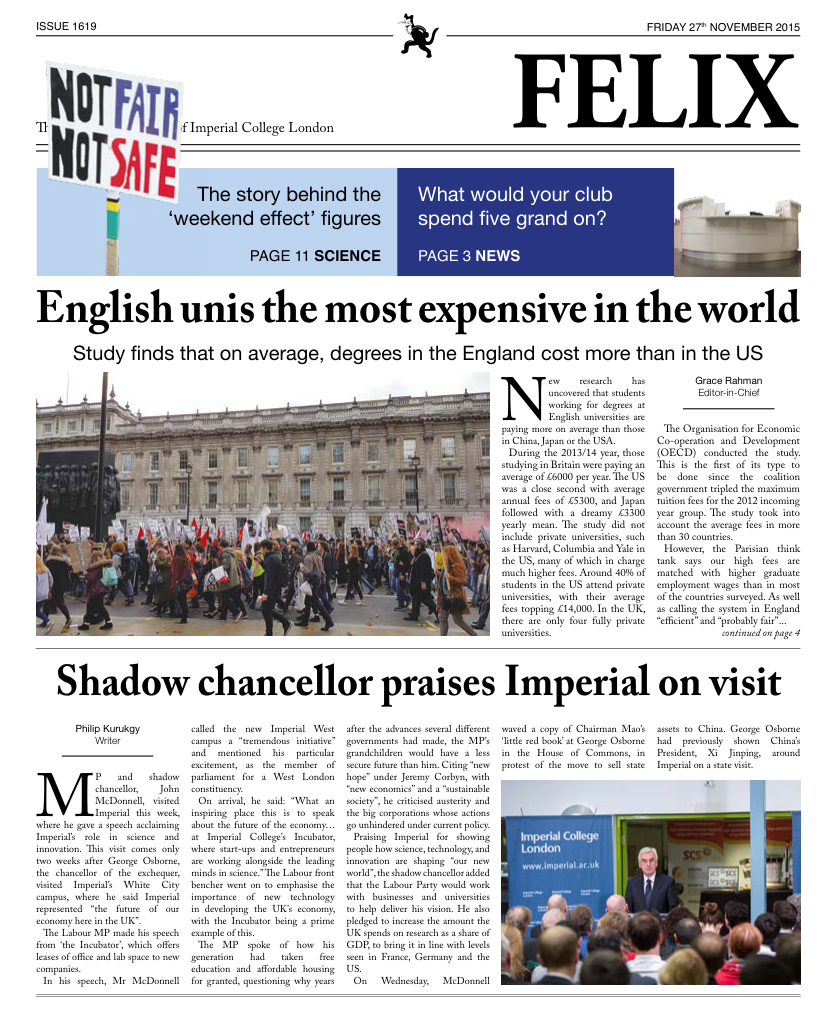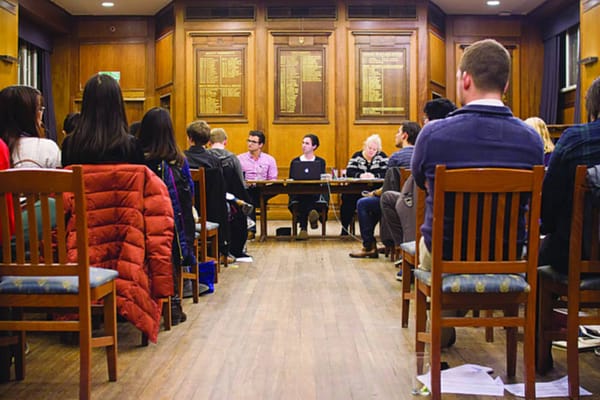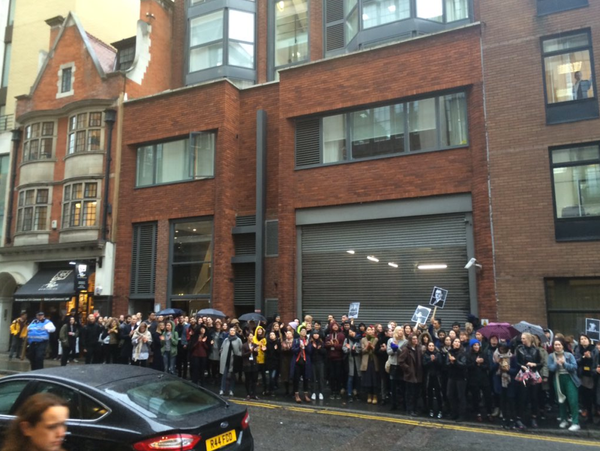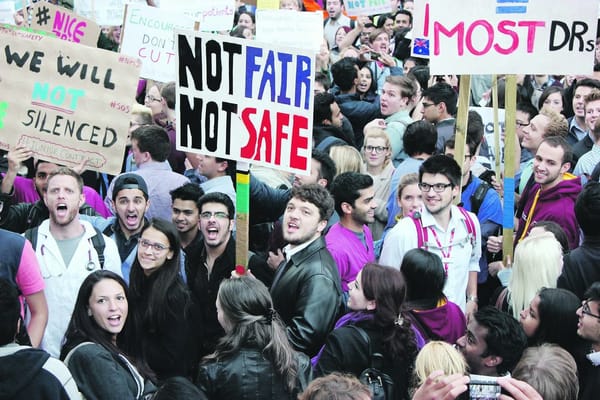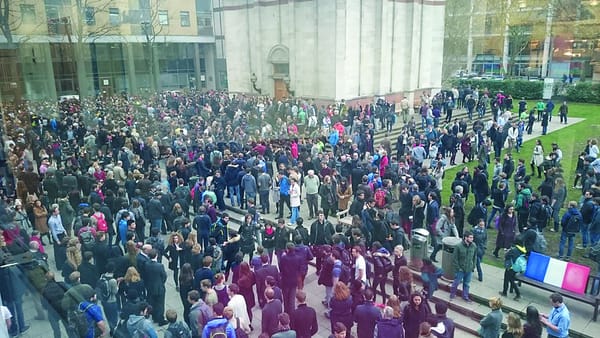Union spends five grand on a desk
In a controversial redevelopment of the union offices, thousands of pounds were spent on stickers, a light-up reception desk and a glass wall
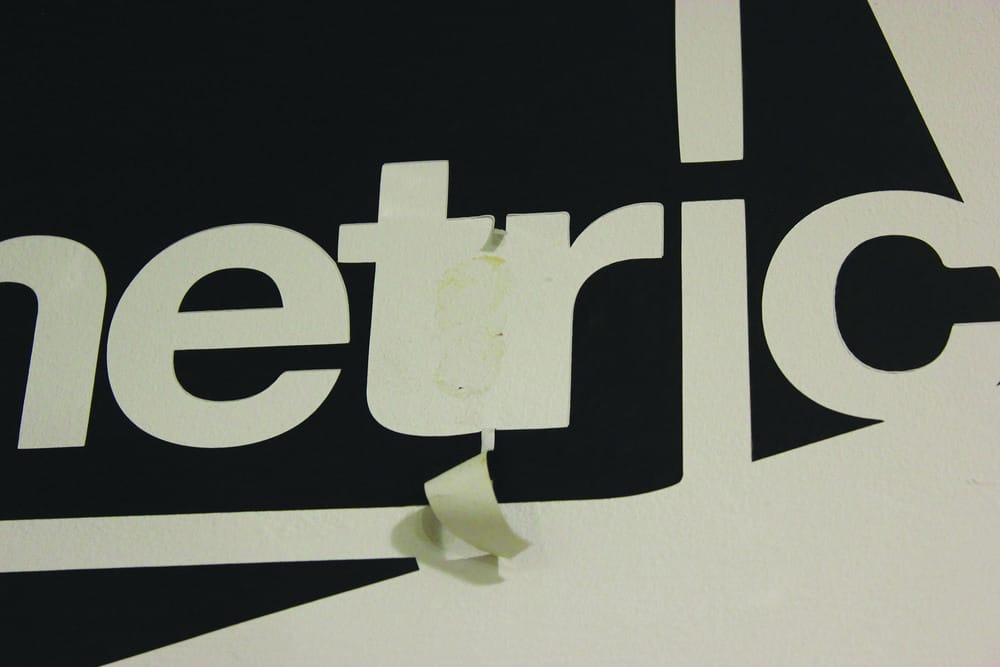
This week it came to light that the union has spent something in the region of £20,000 on the refurbishment of its own office spaces, £5100 of which was spent on a new light-up reception desk. Other monumental costs included £1266 on the removal and disposal of the old reception desk, £4180 on the new glass separating the SAC from staff desks, and the new stickers adorning the area between Metric and FiveSixEight, which cost £1640 to create and install. It is unclear whether this last cost included the price of the perspex added to the wall to protect the adornments.
The stickers appeared at the start of this term, and offer a mind-boggling viewing experience to those queueing for the cloak room or trying to get into Metric. Passers-by have called the display, “disorienting and gaudy”, “patronising” with one simply saying, “vile”.
Passers-by have called the display “disorienting and gaudy”
This comes as I, Science, a Guardian student media award-nominated Imperial publication, had its £3000 budget slashed to zero by the union at the end of last year. As the periodical was mostly run by Science Communication students, that department now covers the costs.
The union president told FELIX: “The Union is proud to invest millions of pounds each year in enhancing the student experience of our members. Investing £4000 a year for the next five years in making our building more welcoming, and the Officer Trustees and staff more accessible is just one small part of that investment.”
FELIX is unaware as to whether these figures include Value Added Tax.
The union’s annual report was released this week too. Staff numbers were up this year from 52 in 2014 to 54 this year, although student staff fell from 132 to 126. Despite this, the amount the union was paying out in wages had increased by £176,000 from 2014. The report also showed one staff member was earning over £80,000 this year, whereas last year, likely the same individual, was earning between £70,000 and £79,999.
Although wages, funding for I, Science, and flashy desks all come from different pots of money, the union has still made the choice to spend a pretty hefty amount of cash on what most would agree was an eyesore. The going rate for fancy curved wooden reception desks, and we’re talking a few steps up from IKEA here, is around one or two grand, so the union certainly could’ve been more frugal.
At union council on the 27th of October questions were raised about the union’s redevelopment, including the vague costs, lack of student consultation and the changes to Student Activities Centre (SAC), which many clubs have found difficult. Chris Kaye, the union’s Deputy President of Finance and Services, was actioned to report on the costings of the union redevelopment to Council. The union’s president was actioned to “look into communications with students over developments in the Union that directly impact the student volunteers”. The next union council meeting is on the 8th of December. Any Imperial student can attend.
As well as a reduction of computers in the SAC from sixteen to six, many clubs have expressed difficulty with the new printing system. Whereas before, club officers could use the space for essentially unlimited and unmonitored printing, now, each club is assigned £10 of printer credit. This works like standard college printer credit, and has the same pricing structure. Several clubs, especially those with lots of music to print, have expressed dismay at the new system.
Although there is a form the union has provided for claiming back lost personal funds, sources from MTSoc amongst others told FELIX: “It’s too difficult to print in the way the union has suggested. The only other option, screenshotting print logs and sending them to the union for verification, seems like a time consuming, needless effort for all involved.”
Another added, “It’s a change that’s hit some clubs’ members harder than others.”

